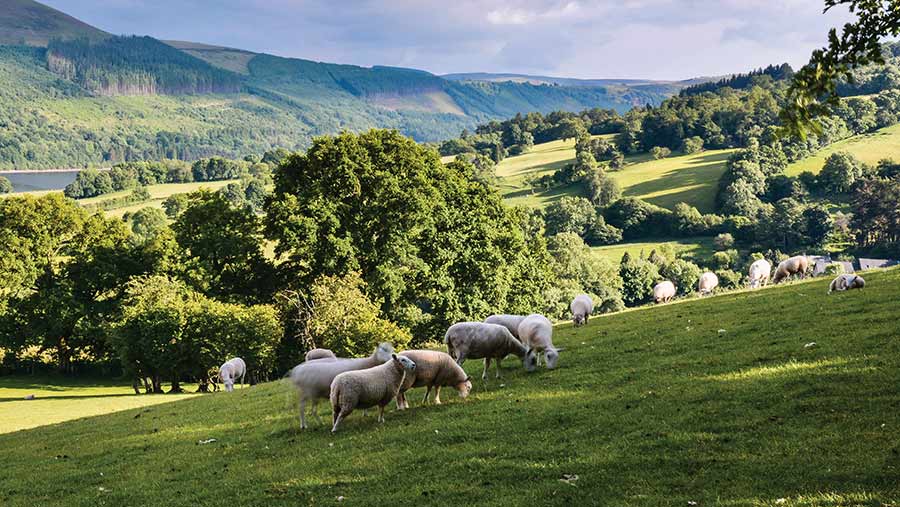Opinion: Direct payments play an essential role in rural Wales
 © Zen light/AdobeStock
© Zen light/AdobeStock 2024 promises to be a momentous year not just for agriculture in Wales, but across the political realm with a general election on the horizon.
Here in Wales, we will also see a new first minister following the decision by Mark Drakeford to retire.
See also: BPS protected, but Welsh farmers face steep budget cuts elsewhere
About the author

Ian Rickman is president of president of the Farmers’ Union of Wales (FUW)
There are big issues at stake. At the front of our minds is the final Sustainable Farming Scheme (SFS) consultation.
The SFS is going to form the mechanism through which farmers will receive support in Wales from 2025 onwards.
It is the most important change to Welsh agricultural policy since the genesis of the CAP in 1962 and we can’t afford to get this wrong.
As farmers, make no mistake – we are up against it with a government that does not fully appreciate the link between direct payments to farmers and the wonderful objectives they have dreamed up in this consultation.
Look at the obvious disconnect they have highlighted through the Habitat Wales Scheme. The writing is on the wall.
Any future payment scheme based on environmental and public goods outcomes must protect family farms, support rural communities and maintain employment in rural Wales – and it is up to us all to make sure that message hits home.
Politicians must ensure that agriculture is both sustainable and rewarding.
To fail to do so will most likely lead to serious damage to Wales’ family farms and the role they play in our economy, society, culture and landscape.
This SFS must be practical for all farmers in Wales and deliver on our economic, environmental and social sustainability goals.
There might be some who can manage without that direct support, but looking at the Welsh Farm Business Survey, the majority of us rely on such support for the survival of our farm business.
It would be folly to suggest that as a sector we can manage and thrive without any support.
New Zealand, which is often referenced in this type of conversation, should serve as a lesson.
Politicians and farmers alike forget the suicides that followed in the wake of the changes imposed there during the 1980s, and are clearly ignorant to the fact this changed the entire fabric of their rural communities.
Is this what we want for Wales? I think not.
Our FUW report The role of farm support in Wales’ livestock supply chains makes clear what would need to change if the direct support payments were to be reduced significantly.
The resulting figures make for very uncomfortable reading and should serve as a warning to those who think that the industry can continue to produce food while also delivering on the many other key asks made of agriculture by the government.
As we go into a new year that may well see a change of government at Westminster and new leadership within government in Wales, it is more important than ever for politicians and policymakers to fully understand the economic role played by farm support within our rural economy.
Any cuts, however small, will have a knock-on effect on many non-farming businesses here in Wales, with our modelled worst-case scenario showing that some non-farming business sectors would lose tens of millions in income.
The inevitable impact of such a decline in business activity will undoubtedly have a direct impact on business viability, rural employment and the very communities that are the backbone of rural Wales.
